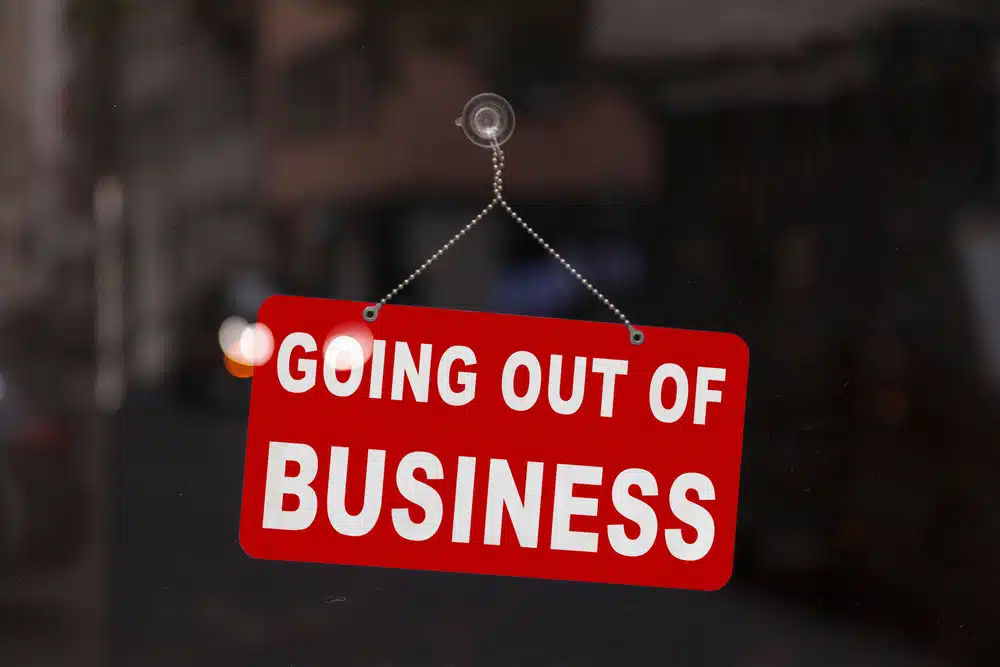 Without making the odd mistake we would never be able to learn anything in the world of business. Do not allow your failures to define you. Having the right mindset is fundamental to overcoming business failure.
Without making the odd mistake we would never be able to learn anything in the world of business. Do not allow your failures to define you. Having the right mindset is fundamental to overcoming business failure.
Flexibility, positivity, and the willingness to change are the first steps. Business failures are part of life, and they are inevitable. We are ultimately determined by how we handle failure whether it leads to success or failure.
KFC (Kentucky Fried Chicken) founder Colonel Harland Sanders can teach us a lot about successful business ownership. He roamed the country looking for an investor to invest in his fried chicken business, while he was 65 years old and had only $105 to his name. Rejection greeted him.
In spite of this, he pushed ahead with his plans with a positive attitude. Eventually, someone saw his potential and invested in him. The company was sold for $2 million when he was 74 years old.
Make sure your business is on a solid foundation to weather any storms that threaten to destroy it by following these 10 rules.
Write Your Business Plan
A clear vision for your company is crucial to overcoming small business failure and thriving. Developing a business plan can help you transform your concept into a viable, successful business and keep you on track.
Even if your business has already begun, you can still look forward. In what ways would you like your business to succeed? In the coming months and years, where do you want the company to be?
You may want to include the following in your business plan:
- Your mission statement
- The products or services you will offer
- Your business niche
- Ways to find prospects
- Marketing strategies
- Problems you will solve and market analysis
- Ways to position yourself against your competitors
- Financing or how you’ll fund the company, such as a bank loan
Obviously, this list isn’t all-inclusive, so you can have whatever vision you want. However, it’s important to have a plan that is practical and attainable.
Conduct a SWOT Analysis of Your Business
Business failure can be prevented by understanding your strengths and weaknesses. An SWOT analysis examines your business’s strengths, weaknesses, opportunities, and threats.
Exercises like this help identify areas where things are working and areas where they aren’t. A successful SWOT analysis includes the following aspects:
- Strengths within the business are factors that contribute to its success. The situation is improving in this area. Take advantage of this opportunity to develop your business. As a starting point, you can build on it.
- Weaknessescause damage internally. There is a problem with something. If you’re not happy with what you’re doing, change it, or find a new way to do it.
- Opportunity arises from external factors and represents a good future prospect. Take advantage of these opportunities and maximise their potential.
- Threatscan cause damage to your business in the form of adverse external factors. Your competition is a good Establish a plan to make improvements that can minimise the negative effects of this problem on your business.
Start by listing your strengths and weaknesses in a SWOT analysis. Consider the future of your business. Take a look at your current situation. Develop a plan of action based on the results of your SWOT analysis and set your goals.
Manage Cash Flow Efficiently
Your business will eventually fail if you do not have consistent and adequate cash flow. To pay your business expenses, you need money coming in. First, do a cash flow forecast to determine where your money is goingand how much you are bringing in. The forecast is only a guide, but it will provide insight into your financial future.
Make use of the forecast to determine how much will be in your bank account based on likely sales and expenditures (including cash transactions).
Paying bills on time is another critical aspect of managing your cash flow efficiently. Invoices must be sent on time, deposits must be taken in advance, and customers who fall behind on payments must be promptly contacted.
Plan and Prepare for the Tough Times
Small businesses can avoid failure if they prepare for tough times, such as a recession or economic downturn.
Your mind becomes muddled when you’re faced with stress-producing personal trials. The way you see yourself could suffer as a result of a decline in self-esteem.
Developing resilience will help you protect yourself. It is inevitable that there will be problems in life. Make an objective assessment of the situation. You should not ignore the problem, instead speak with someone you trust. Believe in yourself, and don’t be hard on yourself. Make sure you are surrounded by the right kind of people for support. Perseverance is the key here.
Perseverance, Determination, and a Positive Mindset
Business management isn’t easy. Those who claim otherwise are lying. Approximately half of all businesses fail within the first five years, according to The Small Business Administration. In spite of this, you can succeed in business. Refuse to become a statistic of business failures and embrace the warrior mindset.
In the midst of Apple’s bankruptcy, Steve Jobs persevered. In the event that Steve gave in to defeat, what would have happened to Apple?
Inspiration and motivation can be found in the stories of successful people who failed on their way to success. Among the most popular authors, Stephen King faced countless rejections. As a result of the weight of the rejection letters, the nails he used to pin them to his wall bent. Before Edison perfected the electric light bulb, he failed countless times.
This list could include many more entrepreneurs and business owners. The perseverance and determination they displayed were unwavering.
Keep Your Customers at the Heart of Your Business
Forbes reports that 80% of a company’s revenue comes from 20% of its customers, according to Gartner Group statistics. The success of your business depends on the loyalty of your customers. Include them in the development of new products, marketing campaigns, and business strategies. Consider their viewpoints, listen to their feedback (both good and bad), and share their case studies.
Starbucks, the world’s largest coffee shop chain, understands how important customer service is. A potential employee is vetted for their good attitude, interest in the customer, and enthusiasm to meet the customer’s needs. In order to deliver the best customer service experience possible, the company is not afraid to invest time and money.
Embrace Failures as Short-Term Setbacks
In 1997, Forbes named Bill Bartmann one of the world’s wealthiest people. Despite his circumstances, he did not wallow in self-pity.
In most cases, failure is viewed as a bad thing. We are tempted to give up when we fail, therefore we give up when we fail. Failure, on the other hand, is a steppingstone used by successful people to climb out of difficulties. Your motivation will be boosted when you understand their struggles.
Find solutions to the problems that caused the failure and reflect on what went wrong. The next time you make a mistake, learn from it and make different decisions. Get inspiration from those who succeeded despite many failures.
Set SMART Goals and Develop Achievable Strategies
Writing down your goals can help you achieve them more easily by providing clarity, which can help you prevent business failure. You can stay focused by setting SMART goals:
- Specific: State what you want to accomplish.
- Measurable: What results do you want to see? Break them down into easy steps.
- Achievable: Are your goals realistic? Make sure you have the time and resources to make them a reality.
- Relevant: Your objectives should line up with what you’re trying to accomplish for your business.
- Timely: Set a deadline and stick to it.
The next step is to develop a plan for implementing your SMART goals. Get ahead by answering these questions:
- What are the steps you will need to take?
- What are the timeframes for each of those steps?
- Who will help you?
Consult an advisor or mentor
You can draw from the knowledge and experiences of a business mentor or advisor to help your business grow. In a survey conducted by Sage, 93% of medium-sized businesses credited their mentors for their success.12
Being an entrepreneur alone is challenging. Whenever an entrepreneur faces a problem, he or she needs encouragement, guidance, and reassurance. Mentors know how to help you because they have been in similar situations themselves. Their advice, constructive feedback, and connections will be valuable to you.
Take Sensible Risks
It is not wise to gamble blindly without considering the consequences of taking a sensible business risk. Test out the options, think carefully, and weigh your options.
Consider, for example, the case where you want to try a new marketing strategy that costs 20% more than your usual one. First, make a small investment to test it out. In the event that this new strategy is successful, invest more money in it.
Taking risks when you are emotionally charged is not a good idea. Consider the opinions of colleagues, friends, and family when discussing your plans. In order for your business to succeed, you’ll have to take sensible risks and step outside your comfort zone. Be wise, knowledgeable, and experienced before moving forward.
The Bottom Line
There is no reason to give up on your business because it has failed. The road ahead will be filled with obstacles, but you will also find ways to overcome them. The same trials you face have already been experienced by someone somewhere. Take lessons from their stories and use them to improve your own business.
Key Takeaways
- Creating a business plan, which includes a mission statement, products or services, and marketing strategy, is a key step.
- A SWOT analysis (strengths, weaknesses, opportunities, and threats) identifies your business’sstrengths and weaknesses.
- It is important to manage cash flow effectively if you want to prevent business failures.
- To help your business succeed and prepare for tough times, set goals and develop achievable strategies.
Frequently Asked Questions (FAQs)
[sc_fs_multi_faq headline-0=”h2″ question-0=”What causes business failure?” answer-0=”Many reasons can lead to a small business failing, including a lack of business plan or a lack of clarity surrounding the steps needed to succeed. Businesses can fail due to poor marketing strategies, poor understanding of the market, and a lack of demand for your products and services.” image-0=”” headline-1=”h2″ question-1=”What is business failure?” answer-1=”Business failure refers to a company ceasing operations following its inability to make a profit or to bring in enough revenue to cover its expenses.” image-1=”” count=”2″ html=”true” css_class=””]Conclusion
Small business failure can be a difficult and disheartening experience, but it is important to remember that it is not the end. One way to overcome small business failure is to analyze what went wrong and learn from past mistakes. This could mean conducting market research, seeking feedback from customers, or reevaluating business strategies.
Another strategy is to seek out mentorship or guidance from more experienced entrepreneurs. Additionally, it may be helpful to diversify revenue streams or explore new opportunities. It is also important to remember to take care of yourself during this process and not to dwell on past failures for too long. Instead, look forward and stay positive.
Lee Jones is a seasoned Business Finance Specialist with over two decades of invaluable experience in the financial sector. With a keen eye for market trends and a passion for helping businesses thrive, Lee has become a trusted advisor to countless organizations seeking to navigate the complexities of finance.


